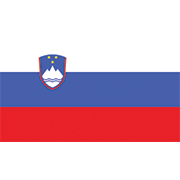Fiscal subject related
According to the draft law, a 12-month notice period will be observed once the bill receives approval, suggesting that the new system will not be introduced before the year 2025.
It's worth noting that Slovenia has been an early adopter of e-invoicing, having mandated B2G e-invoices in 2015, well in advance of the 2019 obligation. The national standard, known as e-SLOG, is based on the national XML standard and uses UBL 2.1 and UN/CEFACT CII D16B.
Other news from Slovenia
Slovenian Tax Authority Announces Shortened Office Hours on 24 and 31 December 2025
 Slovenia
Author: Vukašin Santo
Slovenia
Author: Vukašin Santo
The Financial Administration of the Republic of Slovenia (FURS) will operate on reduced hours from 8:00 a.m. to 1:00 p.m. on 24 and 31 December 2025, with limited contact-centre services, while taxpayers may use the 24/7 chatbot or email sd.fu@gov.si for technical issues outside office hours. The Financial Administration of the Republic of Slovenia (FURS) has announced that its office hours and pu... Read more



Slovenia: Dedicated Digital Certificate Mandatory for Fiscal Cash Registers and Receipt Validation
 Slovenia
Author: Vukašin Santo
Slovenia
Author: Vukašin Santo
Slovenia requires a dedicated digital certificate to operate fiscal cash registers and validate receipts under the Tax Confirmation of Receipts Act (ZDavPR), without which taxpayers cannot report receipt data to FURS. The certificate must be obtained via eDavki before starting cash operations and forms a core part of Slovenia’s real-time digital tax compliance system. Slovenian tax authori... Read more



Fiscalization Update in Slovenia v3.1: New Technical Documentation and Mass Business-Premise Registration Service Now Released
 Slovenia
Author: Vukašin Santo
Slovenia
Author: Vukašin Santo
A new technical documentation version 3.1 has been released, introducing updates to business-premise registration in the production environment and adding a new service for mass registrations. The updated developer instructions provide revised specifications and guidance to help stakeholders adapt their systems, further improving efficiency and integration within the fiscalization process A new ve... Read more



New document was uploaded: S4F backoffice installer
S4F backoffice installer is intended for users who are installing the software for the first time. Please make sure to obtain latest version of installer and to apply all subsequent patches that are released subsequently. This package contains instruction, release notes, changelog and software packages required for deployment of this software component. This version of the Backoffice installer supports the following countries: Austria, Bulgaria, Croatia, France, Italy, Poland, Portugal, Romania, Slovakia and Slovenia. Read more
Subscribe to get access to the latest news, documents, webinars and educations.
Already subscriber? Login


Slovenia Sets 2028 Deadline for Mandatory B2B e-Invoicing
 Slovenia
Author: Vukašin Santo
Slovenia
Author: Vukašin Santo
Slovenia mandates electronic invoicing for B2B transactions starting January 2028, encouraging businesses to prepare through pilot projects and process alignment. The decentralized model, requiring structured XML formats, aims to streamline operations, enhance VAT compliance, and reduce manual workload. Slovenia is preparing for a major digital transformation in business transactions, announcing t... Read more



Slovenia: Scheduled Maintenance on the eDavki System, November 8, 2025
 Slovenia
Author: Vukašin Santo
Slovenia
Author: Vukašin Santo
Urgent maintenance on the eDavki system will occur November 8, 2025, from 2:00 PM to 3:00 PM, possibly causing temporary disruptions. The Tax Administration has announced that urgent maintenance work on the eDavki system infrastructure will take place on Saturday, November 8, 2025, between 2:00 PM and 3:00 PM. Although no service interruption is expected, users may experience temporary disruption... Read more



Slovenia: FURS to Replace TLS Server Certificate in Fiscal Verification System on November 11, 2025
 Slovenia
Author: Vukašin Santo
Slovenia
Author: Vukašin Santo
The Financial Administration of the Republic of Slovenia (FURS) has announced that it will replace the digital server certificate used to establish the TLS connection for the fiscal verification system on November 11, 2025 The Financial Administration of the Republic of Slovenia (FURS) has announced that it will replace the digital server certificate used to establish the TLS connection for the fi... Read more


